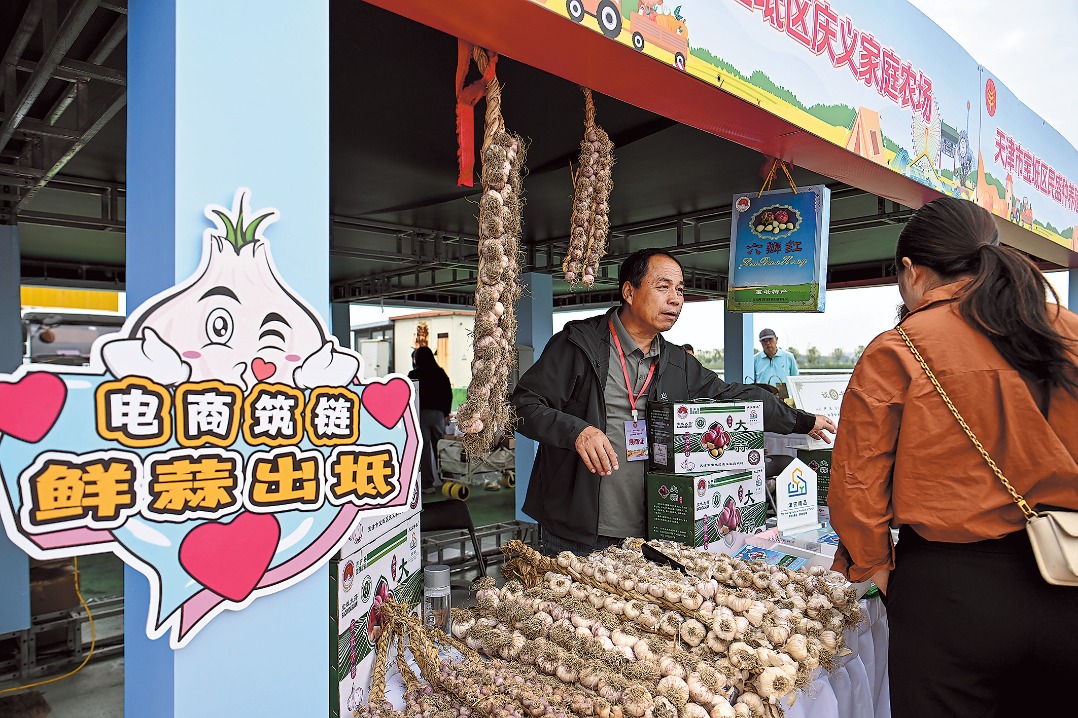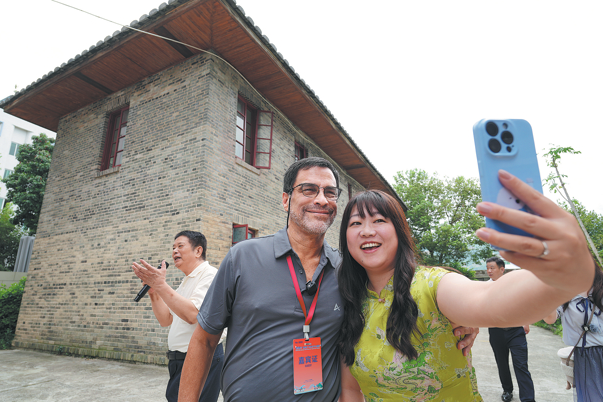AI seen as future of farming in Africa
By OTIATO OPALI in Nairobi, Kenya | China Daily | Updated: 2025-03-28 09:37
Henry Gichobi, a rice farmer in central Kenya, relies on an artificial intelligence tool called Virtual Agronomist to assess soil fertility and optimize yields.
Developed by the global nonprofit Innovative Solutions for Decision Agriculture, the tool allows farmers like Gichobi to communicate via a chatbot on WhatsApp.
"Using satellite information, the app analyzes data to help farmers decide the right type and amount of fertilizer needed to maximize crop yields," said Patrick Wanyaka, a field technician with the organization.
Since adopting the AI tool three years ago, Gichobi's harvest has increased from 63 bags to 113 of rice per hectare.
By uploading photos and farm coordinates to the app, farmers receive satellite images and recommendations to optimize crop yields, Wanyaka said. The app analyzes satellite data to determine the best conditions for specific crops.
More than 30,000 farmers across Africa have used the app for maize, coffee, tea and other crops, he said.
"At first, it was difficult to convince farmers that more fertilizer doesn't mean higher yields. However, when they saw their neighbors who had used the app increasing yield, they became interested."
With AI advances, more farmers like Gichobi are expected to benefit from the technology, potentially transforming African agriculture and strengthening food security, experts said.
Lawrence Nderu, chairman of the computing department of Kenya's Jomo Kenyatta University of Agriculture and Technology, said that while Africa lags in AI development and adoption, local innovations such as Virtual Agronomist demonstrate the potential of machine learning, deep learning and the Internet of Things to empower farmers, enhance food security and drive sustainable agriculture.
Africa stands to gain from AI's predictive capabilities in agriculture, Nderu said, emphasizing that its power goes beyond optimizing farming practices to improving market access.
At a broader level, AI adoption by African governments could transform the continent's agricultural sector by identifying high-impact areas for investment, he said.
However, he emphasized the need for investment in AI training, improved infrastructure and better data integration to unlock its full potential.
"Researchers and institutions are leading the way in coming up with solutions targeting the whole supply chain in agriculture, and what we need is government support in scaling up these solutions."
Nderu highlighted the Smart Mushroom Farming Project launched by J-Hub, an innovation center at his university. Placing smart sensors in mushroom farms enables real-time monitoring of key parameters such as humidity. Farmers can track their crops remotely via mobile apps, receiving alerts to address issues before they affect yields.
Nderu said Africa can leapfrog AI development by adapting existing technologies and reengineering algorithms to create localized solutions.
Before China's DeepSeek, there was a debate over whether AI models required expensive high-level computing, he said. "DeepSeek's efficiency proved that AI models can be built without costly computing resources."
























